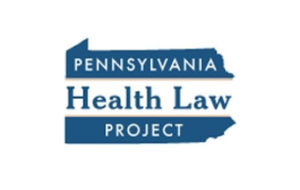Pennsylvania Health Law Project Newsletter
The Pennsylvania Health Law Project has published its May 2021 newsletter.
 Included in this month’s edition are articles about:
Included in this month’s edition are articles about:
- Medicaid eligibility changes permitted for people with Medicare during the COVID-19 emergency.
- Changes in the Medical Assistance work supports program.
- The introduction of changes in the process for enrolling in the state’s Living Independence for the Elderly Program (LIFE).
- The simplification of the dental benefit limits exceptions process.
- A listening session during which Community HealthChoices participants expressed dissatisfaction with receiving their benefits through managed care.
- Actions to terminate some participants from state home and community-based Medicaid programs because their health status has not been reassessed.
Read about these subjects and more in the Pennsylvania Health Law Project’s May 2021 newsletter.
 Other states with major increases in Medicaid enrollment were Missouri (26.5 percent), Illinois (26.3 percent), and Indiana (25.7 percent). The increases appear to have been driven by pandemic-related job losses and the accompanying economic downturn.
Other states with major increases in Medicaid enrollment were Missouri (26.5 percent), Illinois (26.3 percent), and Indiana (25.7 percent). The increases appear to have been driven by pandemic-related job losses and the accompanying economic downturn. Beginning today, SNAP is expanding its regular COVID-19 updates to encompass a broader scope of Pennsylvania state health policy endeavors. As efforts to address COVID-19 prove more effective and the state moves from focusing almost exclusively on the public health emergency back to its usual, much broader array of health policy concerns, we hope this update will be a useful resource on matters of importance to the hospital community. Please feel free to share this newsletter with others in your organization or to send us the email addresses of those you think might be interested and we will send it directly to them.
Beginning today, SNAP is expanding its regular COVID-19 updates to encompass a broader scope of Pennsylvania state health policy endeavors. As efforts to address COVID-19 prove more effective and the state moves from focusing almost exclusively on the public health emergency back to its usual, much broader array of health policy concerns, we hope this update will be a useful resource on matters of importance to the hospital community. Please feel free to share this newsletter with others in your organization or to send us the email addresses of those you think might be interested and we will send it directly to them. In the Legislature
In the Legislature COVID-19: By the Numbers
COVID-19: By the Numbers Pennsylvania Health Care Cost Containment Council
Pennsylvania Health Care Cost Containment Council Included in this month’s edition are articles about:
Included in this month’s edition are articles about: Nearly 400,000 people have joined Pennsylvania’s Medicaid rolls in the past year, raising the total number of participants to 3.2 million.
Nearly 400,000 people have joined Pennsylvania’s Medicaid rolls in the past year, raising the total number of participants to 3.2 million. In separate news releases the Wolf administration announced that Miller, who has led DHS since 2015, “will be moving on to a new opportunity outside Pennsylvania” and leave her job at the end of April and that she will be replaced by Meg Snead, who currently serves as the governor’s Secretary of Policy and Planning.
In separate news releases the Wolf administration announced that Miller, who has led DHS since 2015, “will be moving on to a new opportunity outside Pennsylvania” and leave her job at the end of April and that she will be replaced by Meg Snead, who currently serves as the governor’s Secretary of Policy and Planning. According to the GAO report,
According to the GAO report, In its letter, SNAP asked Congress for:
In its letter, SNAP asked Congress for: